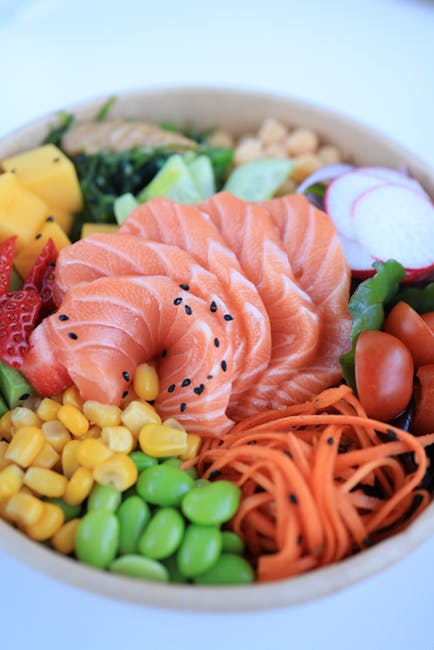Are Cherries Keto? A Deep Dive into Cherry Nutrition and Ketogenic Diet Compatibility
The ketogenic diet, a high-fat, very-low-carbohydrate eating plan, has gained immense popularity for its potential weight loss benefits and other purported health advantages. However, navigating the nuances of what foods are keto-friendly can be tricky. One common question that arises is: are cherries keto? The short answer is, it depends. Let’s delve deeper into the nutritional profile of cherries and their compatibility with the ketogenic lifestyle.
Understanding the Ketogenic Diet
The keto diet primarily focuses on drastically reducing carbohydrate intake to force the body into a metabolic state called ketosis. In ketosis, the body burns fat for fuel instead of glucose (sugar from carbohydrates). This shift in fuel source can lead to weight loss, increased energy levels, and other potential health benefits. However, adhering to strict carbohydrate limitations is crucial for maintaining ketosis.
A typical ketogenic diet consists of a macronutrient ratio of approximately 70-80% fat, 20-25% protein, and only 5-10% carbohydrates. Exceeding the carbohydrate limit can disrupt ketosis, hindering the diet’s effectiveness.
The Nutritional Profile of Cherries
Cherries, a delicious and nutritious fruit, offer a variety of health benefits. They are packed with antioxidants, vitamins, and minerals. However, their carbohydrate content needs careful consideration for those following a keto diet.
A single cup (approximately 150 grams) of fresh cherries contains roughly:
- Carbohydrates: Approximately 20 grams
- Sugar: Approximately 18 grams
- Fiber: Approximately 2 grams
- Protein: Approximately 1 gram
- Fat: Negligible
The relatively high sugar and carbohydrate content is the primary concern for keto dieters. While fiber can help slow down sugar absorption, the net carb count (total carbs minus fiber) is still significant, potentially pushing individuals over their daily carb limit.
Are Cherries Keto-Friendly? The Verdict
Considering the typical daily carbohydrate allowance on a ketogenic diet (20-50 grams), a single cup of cherries can represent a substantial portion of that limit. This means that indulging in cherries may knock someone out of ketosis, especially if they are already close to their carb limit.

Therefore, the answer to “are cherries keto?” is a qualified no for most individuals strictly adhering to a ketogenic diet. While a small handful might be acceptable occasionally, regular consumption of cherries is likely to impede ketosis.
Strategies for Incorporating Cherries into a Keto Diet (with Caution)
For those who crave the taste of cherries, several strategies can be employed to minimize their impact on net carbs:
- Portion Control: Limiting intake to a very small portion (a few cherries) can help manage carbohydrate intake.
- Strategic Timing: Consuming cherries earlier in the day may be less disruptive than later in the evening when the body is less efficient at processing carbohydrates.
- Combining with Fat and Protein: Pairing cherries with a high-fat food, such as a small amount of nut butter, may slow down sugar absorption and lessen the impact on blood sugar levels. This is a very modest strategy that will not significantly lower the net carb count.
- Consider Cherry Extract Supplements: Some people may opt for cherry extract supplements, which provide concentrated antioxidants without the high carbohydrate content of the whole fruit. However, these supplements should be carefully considered, and it is essential to check the product label for ingredients and carb counts.
Alternative Keto-Friendly Berries
If you’re seeking a keto-friendly berry alternative, consider options with lower carbohydrate content:
- Raspberries: Relatively lower in sugar than cherries, but still requires mindful portion control.
- Blackberries: Similar to raspberries in carbohydrate content, moderation is key.
- Strawberries: Also require careful portion control due to moderate sugar content.
The Importance of Individualized Approaches to Keto
Ultimately, the decision of whether or not to incorporate cherries into a ketogenic diet is a personal one. Individual carbohydrate tolerance, activity levels, and specific dietary goals can all influence how the body responds to different foods. It’s crucial to track your macros carefully and monitor your ketone levels (using ketone testing strips or a blood ketone meter) to determine your personal tolerance.
Disclaimer
This article is for informational purposes only and does not constitute medical advice. Consult with a healthcare professional or registered dietitian before making any significant dietary changes, particularly if you have underlying health conditions.

Other Considerations
Beyond the carbohydrate content, the glycemic index (GI) and glycemic load (GL) of cherries also deserve consideration. The GI measures how quickly a food raises blood glucose levels, while the GL considers both the GI and the amount of carbohydrate in a serving. Although cherries have a relatively low GI, their total carbohydrate content can still affect blood sugar levels for some individuals.
The overall impact of consuming cherries on your ketogenic journey will depend on various factors, including your overall daily carbohydrate intake, your individual metabolic response, and your goals for the keto diet.
If you are committed to strict adherence to a ketogenic diet, avoiding cherries completely or consuming them only very rarely in small amounts is the safest approach. Remember to consult with a healthcare professional to determine what dietary choices are best suited for your individual needs.
Monitoring your ketone levels will help you understand how your body reacts to various foods, including cherries, allowing you to make informed choices that support your keto goals. Keep in mind that every individual’s response to a keto diet, including the consumption of seemingly small quantities of fruits like cherries, will be unique.
In summary, while cherries offer some nutritional benefits, their carbohydrate content generally makes them unsuitable for those seeking strict adherence to the ketogenic lifestyle. However, careful planning and moderation might allow for occasional, limited consumption. Always prioritize your health and consult with relevant healthcare professionals for personalized guidance.


